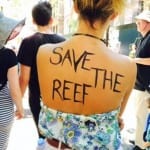Queensland election result could be terminal for Galilee coal projects
The landmark Queensland State election yesterday is likely to introduce a new Labor-led government elected with the key policy framework of “Saving the Great Barrier Reef”.
The ALP has committed to remove state subsidies for the Galilee coal and associated rail projects, banning Reef dumping and to ensure no dredging is undertaken at Abbot Point prior to financial close on any project.
This election result will return the focus of Adani’s $15 billion Carmichael coal mine plus associated rail and port infrastructure proposal to the key questions of financial viability and strategic logic in the face of the structural decline of seaborne thermal coal markets.
Central to its “Saving the Great Barrier Reef” policy, the Queensland Labor Party has committed to:
- “Ban the sea dumping of capital dredge spoil within the Great Barrier Reef World Heritage Area”;
- “Labor does not support … plan to dump dredge spoil from Abbot Point onto the Caley Valley Wetlands”;
- “We will ensure that dredging does not go ahead until Adani has demonstrated its project has financial close”;
- “The stewardship of the Great Barrier Reef necessitates that we have a comprehensive climate change policy”;
- “Repeal the Newman Government’s water laws”; and
- “Labor will not spend taxpayer money to build a private rail line for a private commercial project. …. Labor will not do any secret deals.”
Labor’s policies will see the removal of numerous taxpayer funded subsidies as diverse as buying dredge spoil, co-funding a foreign billionaire owned private rail line, allocating free water permits and funding a new single purpose water channels for 200km to the Carmichael proposal.
The commercial viability of Adani’s Carmichael proposal without this government support is highly questionable. At the least the port project will not be allowed to commence until financial close, currently not scheduled until the end of 2015.
The proposal to open up the Galilee coal basin for up to nine new mega-coal projects would see up to 300 million tonnes per annum of additional thermal coal exports. The 60 per cent decline in coal prices over the last four years reflects significant oversupply and weaker than expected demand. Flooding the seaborne coal market with a further 30% increase in global supply is against Australia’s national interests.
Opening the remote and lower quality Galilee Basin flies in the face of increasing global action on climate change by many of Australia’s major trading partners.
Korea has just launched its national emission trading scheme in January 2015. In November 2014 India committed to a US$100 billion renewable energy program and US$50 billion electricity grid modernisation in the next five years. In the same month the China-US Climate Agreement committed both countries to expand on their significant, sustained efforts to systemically reduce emissions.
There are serious questions for the incoming executive in Queensland to examine how and why such lavish promises by way of enormous public subsidies were made to the Adani group in the face of conventional economics and our, and many others, continued analysis that showed this proposal was unbankable on commercial terms.”
Tim Buckley is the Director of Energy Finance Studies, Australasia for the Institute for Energy Economics and Financial Analysis. He has 25 years of financial markets experience, including 17 years with Citigroup culminating in his role as Managing Director and Head of Australasian Equity Research. His detailed reports on Adani and GVK, global electricity markets plus the Indian electricity sector can be found here.


